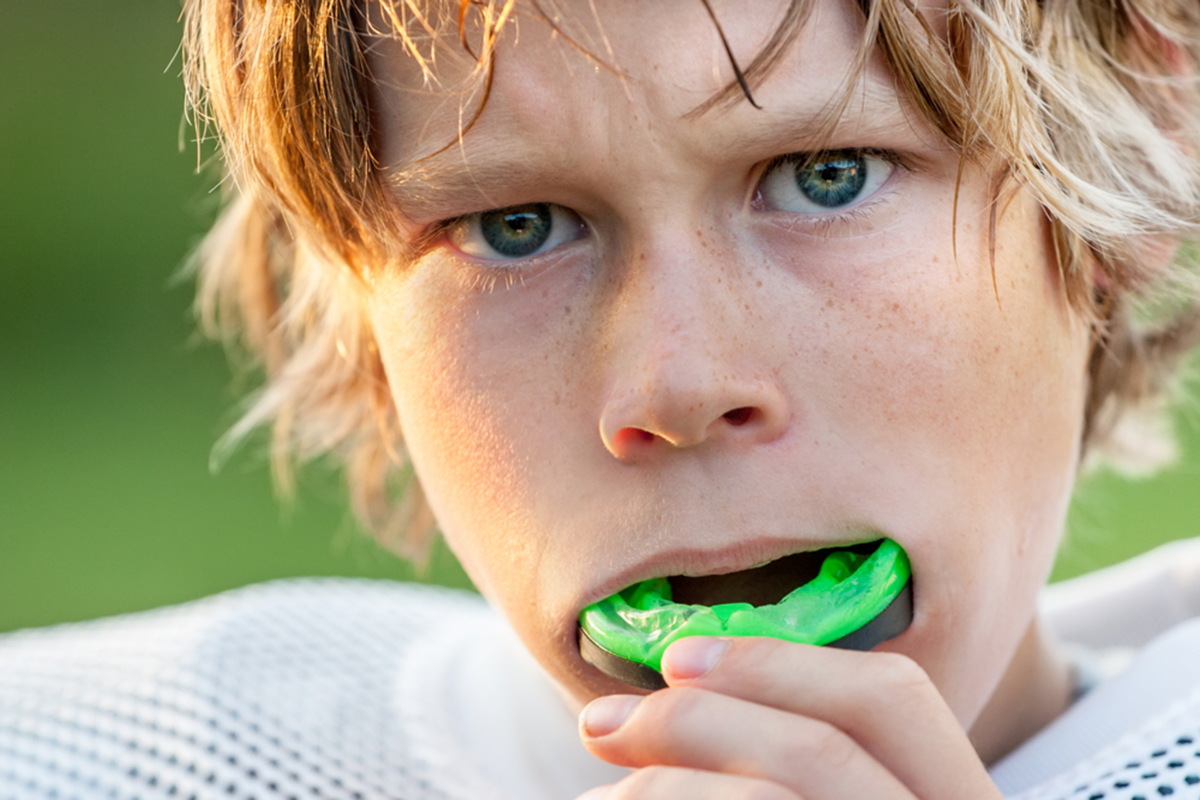December 11, 2020

Can William Shakespeare help us to understand the differences between sports mouth guards and dental mouth guards in Winnipeg? In Romeo and Juliet, we read: “What’s in a name? That which we call a rose By any other name would smell as sweet.” Juliet might have been willing to ignore that Romeo was a Montague by calling him Mr. Jones, but we can’t say the same thing about sports guards and mouthguards.
Whatever you call them — and even if you use the names interchangeably — mouth guards and sports guards that you can get from a dentist near you aren’t the same. Let’s take a close look at the differences and why they’re important.
What night guards and mouthguards do
Night guards protect your teeth from the clenching of your jaw and the grinding of your teeth as you sleep due to sleep bruxism. Some estimates suggest that as many as 60% of adults rhythmically move their jaw as they sleep. Depending on pressures imposed, some of those movements can damage dental work, damage teeth, and cause significant pain. A night guard imposes a physical barrier between your upper and lower teeth to prevent them from grinding against each other.
Sports guards are intended to protect your teeth from damage and injury while participating in sports. While they’re most commonly worn in fast-paced and high-collision sports such as football and hockey, they can protect the teeth of athletes in almost any sport that potentially exposes teeth to torque and pressure.
Three reasons not to wear a sports mouth guard as a night guard
No, you should not wear a sports mouthguard to protect your teeth from the negative effects of sleep bruxism. Why not? The explanation boils down to three issues.
| Sports mouth guards | Night mouth guards |
| Sports mouth guards are designed to be worn for an hour or so at a time during a sporting event or practice. Over that space of time, your mouth guard will accumulate saliva and bacteria, but not like a night mouth guard will. | Night mouth guards are designed to be worn all night long, seven days a week. Night mouth guards are designed for that purpose and duration, including to deal with the accumulation of saliva and bacteria during that period that the design of sports mouth guards just doesn’t take into account. |
| Sports mouth guards cover your teeth all the way from the crown (biting surface) to the gum line, and beyond the gum line to cover the junction and root below your gums. The trapping of bacteria and saliva around every surface of the teeth and gums isn’t a big deal considering you’ll only wear them a short time, and the coverage provides complete protection from injury and damage. | NIght mouth guards cover only your teeth’s surfaces, and especially the biting surfaces of your teeth. NIght mouth guards do not cover any portion of your gums. That’s a good thing, because saliva and bacteria trapped around your gums as you sleep — if you wore a sports mouth guard overnight, for example — would likely cause gingivitis and even periodontitis. |
| Traditional athletic mouth guards are made of very thick material in order to cushion against the shock of collisions. Wearing that thick mouth guard and separating the biting surfaces of your teeth by those distances for an hour or so at a time is not a problem. | Night mouth guards are made of thinner material than sports guards, though material thick enough to protect the biting surfaces of your teeth. That’s important because forcing your bite to stay open for too great a distance all night long every night can cause jaw pain, headaches, and orthodontic issues |
Sports mouth guards and night mouth guards are both essential pieces of equipment. Both perform essential functions, and your dentist in Winnipeg can provide the perfect customized guard to provide the protection you need. Don’t confuse them, though. Calling them both guards does not make them the same. Talk to a dentist near you about exactly the protection you want so they can provide you with that guard you need.
 1440 Jack Blick Ave #104, Winnipeg, MB R3G 0L4, Canada
1440 Jack Blick Ave #104, Winnipeg, MB R3G 0L4, Canada 204-774-2521
204-774-2521


